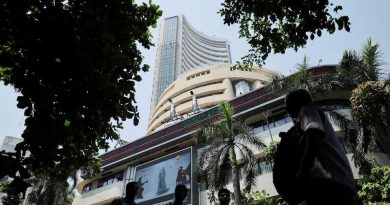G20 officials arrive in disputed Kashmir as India largely puts region’s intense security out of view
Srinagar (AP) — Delegates from the Group of 20 nations arrived in Indian-controlled Kashmir on Monday to participate in a tourism meeting condemned by China and Pakistan, as authorities significantly reduced visibility of the security in the disputed region’s main city.
The meeting scheduled for later Monday is the first significant international event in Kashmir since New Delhi stripped the region of semi-autonomy in 2019. Indian authorities hope the meeting will show that the controversial changes have brought “peace and prosperity” to the region.
The delegates will discuss topics like green tourism and destination management. Side events on ecotourism and role of films in promoting tourist destinations have also been scheduled.
On Monday, the region’s main city of Srinagar, appeared calm and roads never as clean. Most of the security checkpoints were removed or camouflaged with cubicle-like security posts made of G20 signages behind which security officials stood.
Officials said hundreds of officers were specially trained for what they call “invisible policing” for the event.
Shops in the city center also opened earlier than usual after several meeting between trade representatives and security officials. But authorities closed the main road leading to the convention center for civilian traffic and shut many schools in the city.
Mondays’ measures contrasted starkly to the security imposed in the days before the event. A massive security cordon was placed around the venue on the shores of Dal Lake in Srinagar with elite naval commandos patrolling in rubber boats in the water. The city’s commercial center was spruced up, with freshly black-topped roads leading to the lakeside convention center and power poles lit in the colors of India’s national flag.
“We have the making of a unique meeting,” India’s chief coordinator for the G20, Harshvardhan Shringla, told reporters Sunday. He said the event will have the highest representation of foreign delegates in comparison to previous tourism meetings India held in the states of West Bengal and Gujarat earlier this year.
Last week, the U.N. special rapporteur on minority issues, Fernand de Varennes, said the meeting would support a “facade of normalcy” while “massive human rights violations” continue in the region. India’s mission at the U.N. in Geneva rejected the statement as “baseless” and “unwarranted allegations.”
India’s tourism secretary, Arvind Singh, told reporters Saturday that the meeting “was not only to showcase its (Kashmir’s) potential for tourism but to also signal globally the restoration of stability and normalcy in the region.”
The region remains one of the world’s most heavily militarized territories, with hundreds of thousands of Indian troops. In 1989, a violent separatist insurgency erupted in the region that sought independence or a merger with Pakistan. India replied with a brutal counter insurgency and tens of thousands of civilians, soldiers and rebels have been killed in the conflict.
India’s crackdown intensified after 2019 when New Delhi took the region under its direct control. Since then the territory’s people and its media have been largely silenced. Authorities have seized scores of homes and arrested hundreds of people under stringent anti-terror laws. The government says such actions are necessary to stop what it calls a “terror ecosystem.”
Authorities have also enacted new laws that critics and many Kashmiris fear could transform the region’s demographics.
The G20, made up of the world’s largest economies, has a rolling presidency with a different member setting priorities each year. India is steering the group in 2023.
India has been promoting tourism in Kashmir as a sign of peace since 2019 decision. But the region, known for rolling Himalayan foothills, has for decades been a major domestic tourist destination. Millions of visitors arrive Kashmir every year and enjoy a strange peace kept by ubiquitous security checkpoints, armored vehicles and patrolling soldiers.
The mainstay of Kashmir’s economy, however, continues to be agriculture, and tourism industry only contributes about 7% to the region’s GDP.
China, with which India is locked in a military standoff along the mostly unmarked border in the Ladakh region, has boycotted the event. Pakistan, which controls a part of Kashmir but, like India, claims the entire territory, has also slammed New Delhi for holding the meeting in Srinagar.
Both have argued that such meetings can’t be held in disputed territories.
India has dismissed Pakistan’s criticism, saying that the country is not even a member of the G20.



